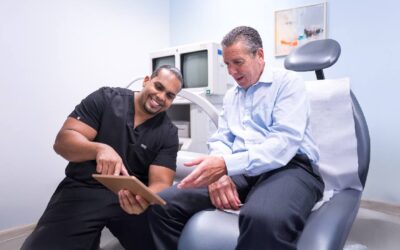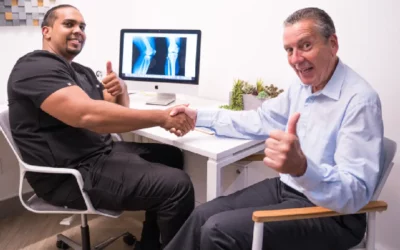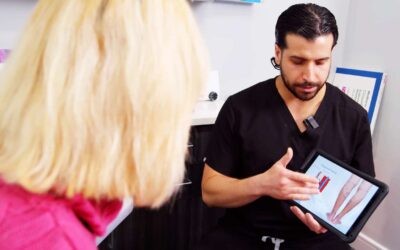Non-Invasive Vein Treatments for All Ages: Compression Stockings, Lifestyle Changes, and More…
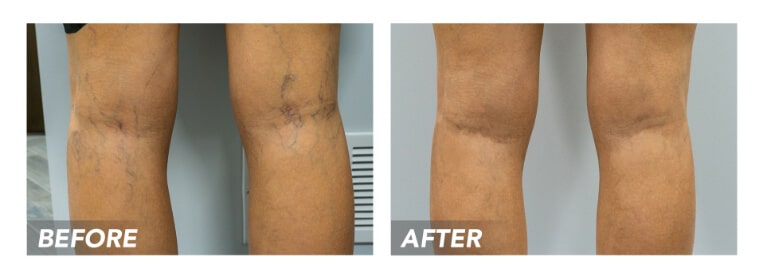
Are you tired of those pesky spider veins or the discomfort of varicose veins? Many people, regardless of age, face these common vein issues at some point in their lives. The good news is that there are non-invasive vein treatments and simple lifestyle changes that can help you manage your symptoms and prevent the progression of varicose veins. While lifestyle changes and non-invasive treatments can’t treat the root cause of vein problems, they can buy you enough time to consider more effective, minimally invasive vein treatments.
At New Jersey Vein Treatment, we specialize in providing minimally invasive and non-invasive vein treatments that cater to patients of all ages. Our experienced team of board-certified vein doctors is dedicated to diagnosing and treating vein issues efficiently and effectively. In this comprehensive guide, we explore various non-invasive vein treatments, including compression stockings, lifestyle changes, and more, to help you regain your confidence and comfort.
First, Can Vein Problems Affect Young People?
Vein problems, such as spider veins and varicose veins, tend to become more common as we age. This is primarily due to the wear and tear that our veins endure over the years. As we grow older, the walls of our veins may lose some of their elasticity, and the valves responsible for maintaining proper blood flow may weaken. Additionally, prolonged periods of sitting or standing, which are often associated with certain professions, can exacerbate vein issues. These factors combine to make vein problems more prevalent among the older population.
However, vein problems are not exclusive to the elderly. People of all ages can be affected by spider veins and varicose veins. While it’s true that the risk increases with age, genetic predisposition, hormonal changes (such as pregnancy or puberty), obesity, and even injury can lead to vein issues in individuals who are relatively young. Therefore, it’s crucial to recognize that vein problems can affect you, regardless of your age, and there are non-invasive treatments and lifestyle changes that can make a significant difference in your vein health.
Risk Factors for Vein Conditions in Younger Patients:
- Genetics: Family history plays a pivotal role in the development of vein conditions. If your parents or close relatives have had issues with spider veins or varicose veins, your genetic predisposition may increase your susceptibility to these conditions at a younger age.
- Hormonal Changes: Puberty, pregnancy, and the use of hormonal contraceptives or hormone replacement therapy can lead to hormonal changes that affect vein elasticity and blood flow regulation, leading to vein issues, especially in women.
- Obesity: Excess body weight is a well-established risk factor for vein problems. The added pressure from carrying excess weight can strain veins, causing them to weaken and become less efficient in returning blood to the heart.
- Sedentary Lifestyle: Many younger individuals have jobs that require long periods of sitting or standing. A sedentary lifestyle, whether due to desk work or occupations that involve standing for extended periods, can disrupt healthy blood flow, leading to vein issues.
- Lifestyle Choices: Lifestyle factors, such as smoking and dietary habits, can affect veins. Smoking can constrict blood vessels and impair circulation, while a diet high in processed foods and sodium can contribute to fluid retention and increased pressure on veins.
Compression Stockings
Compression stockings, also known as support stockings or compression hosiery, are specially designed garments that provide graduated pressure to the legs and feet. They are made from elastic materials that exert the most pressure at the ankle and gradually decrease as they move up the leg. This graduated compression promotes better blood circulation by assisting the veins in returning blood to the heart. Compression stockings are often prescribed to manage vein conditions, reduce swelling, alleviate discomfort, and prevent further progression of vein issues.
Benefits of Compression Stockings:
- Improved blood circulation
- Reduced swelling and edema
- Alleviation of leg pain and discomfort
- Prevention of blood clots
- Minimized risk of varicose veins
- Enhanced recovery after surgery or injury
- Lowered risk of deep vein thrombosis (DVT)
- Support for individuals with venous insufficiency
- Increased comfort during long periods of standing or sitting
Personalized According to Your Needs
At New Jersey Vein Treatment, we understand that every patient is unique, and their vein issues require individualized care. Our experienced vein specialists assess your specific condition, taking into account factors like the severity of your vein issues and your lifestyle. We then recommend the most suitable compression level and style to ensure maximum comfort and effectiveness. Improper use of compression stockings can be make the treatment ineffective or, in some cases, even cause injuries and worsen the condition.
Effective at Every Stage of Vein Care:
- Preventative Care: Compression stockings serve as an effective preventive measure. Wearing compression stockings can significantly reduce the risk of developing vein problems. By promoting healthy blood circulation, these stockings help prevent veins from weakening and the formation of issues like spider veins or varicose veins.
- Symptom Management: For individuals already dealing with vein conditions, compression stockings play a crucial role in preventing the worsening of existing problems. They assist in alleviating symptoms like pain, swelling, and discomfort by aiding blood flow, thereby reducing the pressure on affected veins. This slows down the progression of vein issues.
- Post-Treatment Recovery: Compression stockings are instrumental in recovery. After undergoing minimally invasive treatments like endovenous laser ablation or sclerotherapy, wearing compression stockings is often recommended. These stockings promote faster recovery by reducing swelling and bruising and supporting the healing process.
- Preventing Recurrence: Finally, for those who have already undergone vein treatments, compression stockings can help reduce the risk of vein disease recurrence. By providing ongoing support to your venous system, they prevent the accumulation of blood in leg veins and thus minimize the risk of new spider veins or varicose veins.
Lifestyle Changes
While lifestyle changes can’t treat the root cause of vein problems or repair damaged veins, they play a pivotal role in preventing existing vein conditions from worsening. Primarily, lifestyle modifications aim to improve blood circulation and prevent blood from accumulating in the leg veins. By implementing these adjustments into your daily routine, you can take proactive steps to support your vein health and minimize the discomfort associated with venous issues.
Implement These Lifestyle Modifications:
- Exercise Regularly: Engaging in regular physical activity, such as brisk walking, swimming, or cycling, strengthens leg muscles and stimulates blood circulation throughout your body. This helps veins return blood to the heart, reducing the risk of vein problems.
- Maintain a Healthy Weight: Carrying excess body weight places additional pressure on your veins, particularly in the legs. Losing weight through a balanced diet and exercise can alleviate this pressure, promoting better vein health and reducing the likelihood of vein issues.
- Take Breaks from Prolonged Sitting or Standing: Prolonged periods of sitting or standing can lead to blood pooling in the leg veins. Remember to take short breaks, stretch, and walk around periodically to encourage blood flow and relieve vein stress.
- Elevate Your Legs: Elevating your legs above heart level when resting helps gravity assist in the return of blood to the heart. This simple practice reduces swelling, discomfort, and the risk of developing varicose veins.
- Stay Hydrated: Drinking an adequate amount of water throughout the day prevents blood from thickening, which can hinder circulation. Proper hydration maintains the fluidity of your blood, ensuring it flows smoothly through your veins.
- Limit High Heel Use: High-heeled shoes can strain calf muscles and alter your gait, affecting blood flow in the legs. Whenever possible, opt for comfortable, low-heeled shoes to minimize vein-related discomfort and improve blood circulation.
Minimally Invasive Vein Treatments
When it comes to addressing vein problems, minimally invasive vein treatments stand out as the only real solution. These cutting-edge procedures go beyond merely managing symptoms; they tackle the root cause of venous issues, providing long-lasting relief and improving vein health. New Jersey Vein Treatment exclusively offers minimally invasive vein treatments, such as sclerotherapy, endovenous laser ablation, and radiofrequency ablation. These procedures target the underlying problems within your veins, such as faulty valves or weakened vessel walls, and remove the superficial varicose and spider veins.
Before embarking on any treatment, we prioritize an accurate diagnosis. Through thorough examination, including duplex ultrasound, we identify the specific issues affecting your veins. This ensures that you receive a personalized treatment plan tailored to your unique needs. Minimally invasive vein treatments, coupled with precise diagnostics, represent the most effective approach to address vein problems comprehensively and restore your vein health.
Benefits of Minimally Invasive Vein Treatments:
- Precise Targeting: Minimally invasive procedures directly address the root causes of vein issues, i.e., chronic venous insufficiency, ensuring a more long-term solution.
- Minimal Discomfort: These treatments are designed to minimize discomfort, with most patients experiencing only mild or no pain during and after the procedure.
- Rapid Recovery: Unlike traditional surgical interventions, minimally invasive treatments require minimal downtime, allowing you to return to your daily activities quickly.
- Improved Aesthetics: These procedures not only relieve symptoms but also enhance the appearance of your legs by reducing the visibility of spider veins and varicose veins.
- Lower Risk of Complications: Minimally invasive techniques involve smaller incisions or injections, reducing the risk of complications such as infection or scarring.
- Preservation of Healthy Tissue: These procedures focus on the problem areas within the veins while preserving surrounding healthy tissue, promoting faster healing.
- Long-Term Results: Minimally invasive vein treatments offer lasting results, minimizing the chances of vein problems recurring in the future.
Visit New Jersey Vein Treatment
If you’re struggling with vein issues, there’s no need to suffer in silence. New Jersey Vein Treatment offers a range of non-invasive and minimally invasive treatments to help you regain your confidence and comfort. From compression stockings and lifestyle changes to advanced procedures like endovenous laser ablation and VenaSeal, we have the expertise and resources to provide you with the care you deserve.
We are conveniently located in Clifton, Paramus, Woodland Park, Woodbridge Township, and Scotch Plains, making it easy for you to access our state-of-the-art vein medical centers for vein treatment. Contact us today to schedule a consultation.
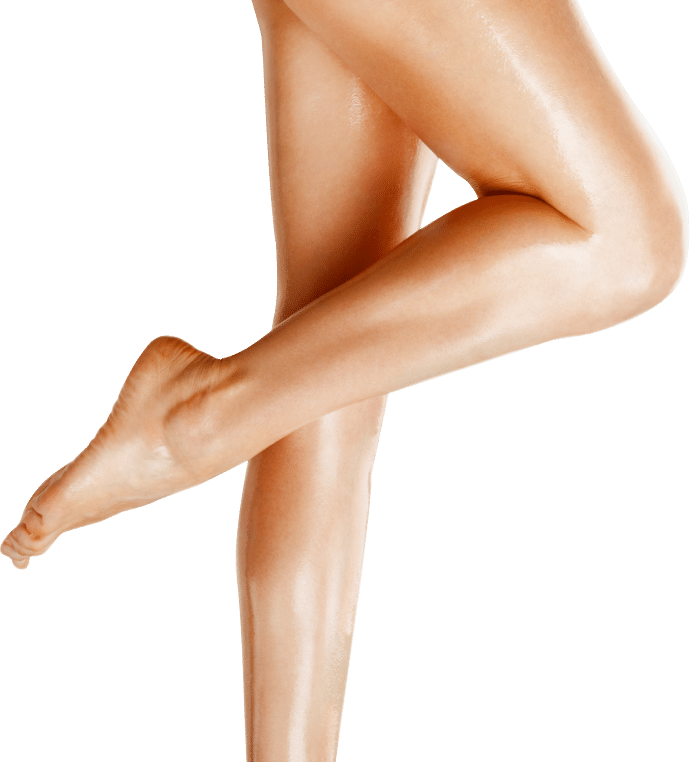
BOOK AN APPOINTMENT
Do you have any symptoms? Consult now with one of the Best Vein Specialist in New Jersey
NJ Vein Doctors
Meet our team of New Jersey Vein Treatment Specialists
Vein Treatments are covered by most major medical insurances, including Medicare. Call us today to verify your insurance for FREE >
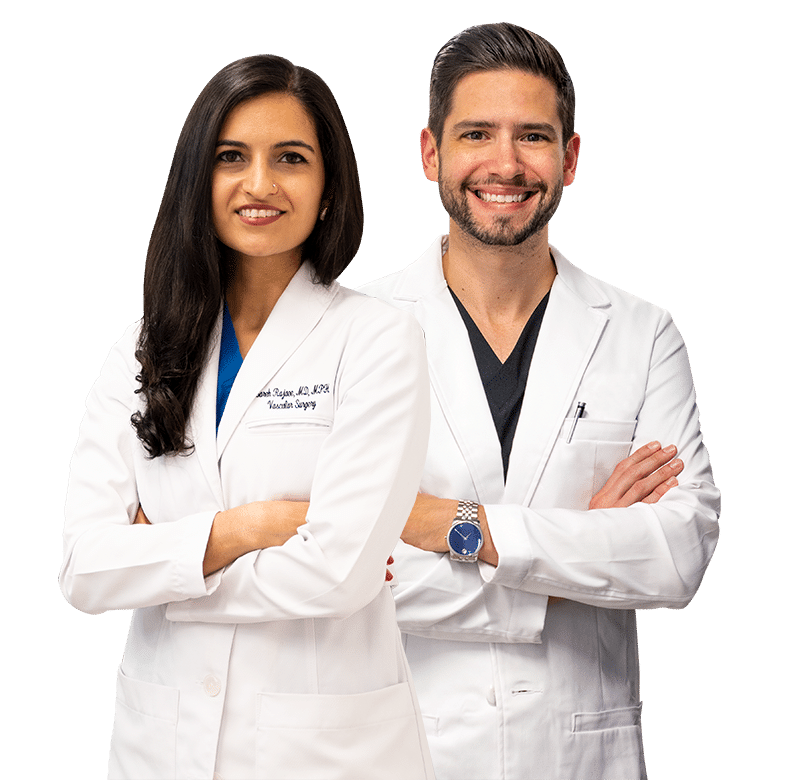
Meet our Team of Top Vein Specialists in New Jersey
Contact us
CALL US
Speak instantly with one of our team members; they will answer any questions you may have regarding insurance coverage, booking an appointment and our vein treatment locations. (973) 946-8082
BOOK APPOINTMENT
Visit our Book Appointment page and instantly request an appointment at the New Jersey vein center. We offer Free Insurance Verification before your appointment.
